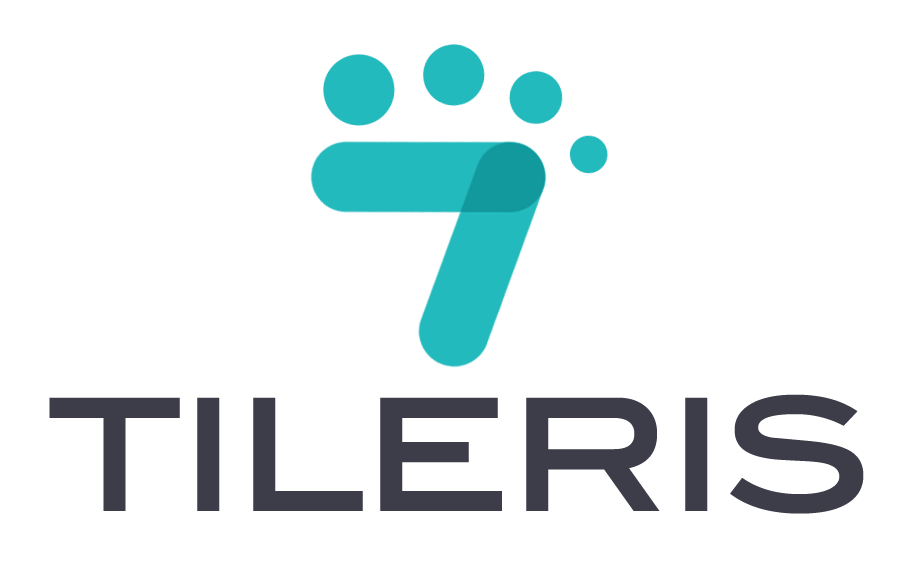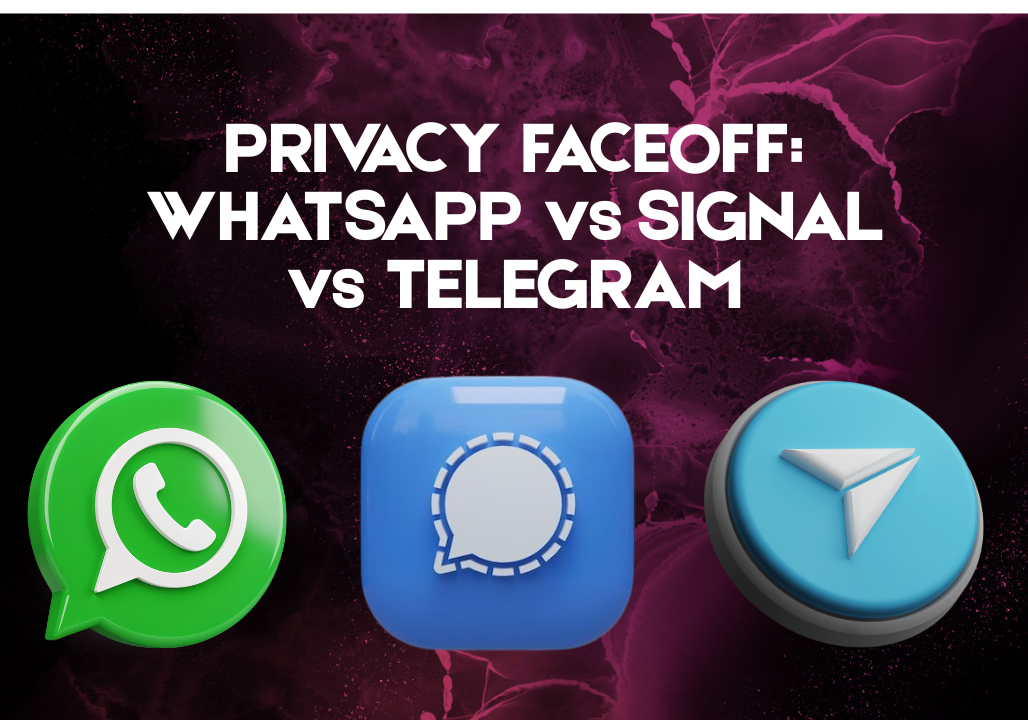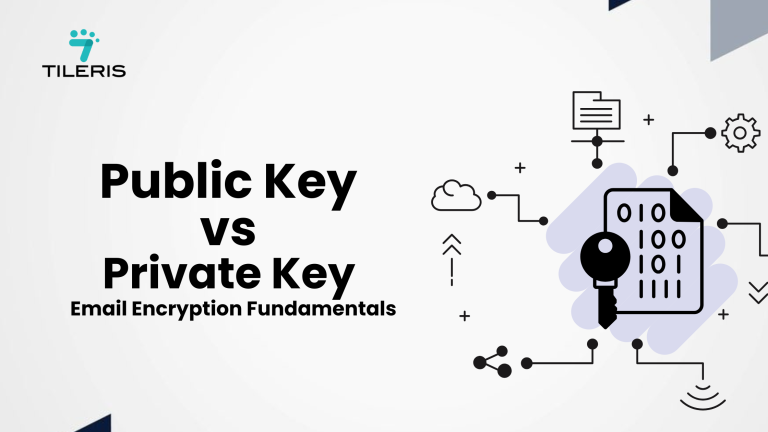WhatsApp vs Signal vs Telegram: Which is Actually Secure?
Introduction
In an era of pervasive digital surveillance and data breaches, the security of our private conversations has become a paramount concern. Messaging apps, once simple communication tools, are now critical infrastructure for personal and professional interactions. But with a multitude of options available, discerning which app truly safeguards your privacy can be daunting. This article looks deeply into the security architectures of three of the most popular messaging apps, WhatsApp vs Signal vs Telegram, to determine which offers the most robust protection.
Core security features
- End-to-End Encryption (E2EE):
- WhatsApp: All messages, calls, media, and status updates are end-to-end encrypted by default, for both individual and group chats. This means only the sender and recipient can read the messages, and not even WhatsApp can access the content.
- Signal: All messages, calls, and group chats are end-to-end encrypted by default. Signal is often lauded as the gold standard for E2EE implementation.
- Telegram: E2EE is not default for regular chats or group chats. It is only available for “Secret Chats” (one-to-one conversations) which must be manually initiated by the user.4 Regular cloud chats are encrypted client-server, meaning Telegram itself can technically access them. Channels and large groups are also not E2EE.
- Encryption Protocols:
- WhatsApp: Uses the open-source Signal Protocol for its end-to-end encryption. This is the same protocol developed by Signal itself and is widely peer-reviewed and considered highly secure.
- Signal: Developed and exclusively uses its own open-source Signal Protocol. It combines the Double Ratchet Algorithm, prekeys, and a triple elliptic-curve Diffie–Hellman (3-DH) handshake, providing strong forward secrecy and post-compromise security.
- Telegram: Uses its proprietary protocol called MTProto. Unlike the Signal Protocol, MTProto is not open-source or widely peer-reviewed in the same way, and its cryptographic design has faced criticism from security researchers in the past for its non-standard implementation.
- Data Storage and Retention Policies:
- WhatsApp: E2E encrypted messages are stored on your device and temporarily on their servers for delivery. Once delivered, they are deleted from servers. Undelivered messages are kept for up to 30 days. WhatsApp also offers optional encrypted cloud backups (Google Drive/iCloud), but these are not managed by WhatsApp’s E2EE, meaning their security depends on Google/Apple’s encryption.
- Signal: Messages and user history are stored locally on your device only. Signal’s servers explicitly do not store messages, call logs, or any user data. The only data Signal collects is your phone number, the date your account was created, and the last time you connected to its servers. This minimal data retention policy is a key differentiator.
- Telegram: Regular cloud chats (not Secret Chats) are stored on Telegram’s servers. This allows for multi-device sync but means Telegram could technically access the unencrypted content if compelled or compromised. Secret Chats are stored only on the participating devices. Telegram collects some metadata like IP addresses.
- Two-Factor Authentication (2FA):
- WhatsApp: Offers optional 2FA (called Two-step verification) with a PIN. This protects your account if someone gains access to your SIM card or phone number. It now also supports passkey authentication for more secure logins.
- Signal: Offers optional 2FA (PIN) to prevent account re-registration. Signal’s PIN is tied to your account and protects your profile, settings, and contacts list, even if your device is stolen.
- Telegram: Offers optional 2FA with a password. This adds an extra layer of security beyond the SMS code.
- Group Chat Security:
- WhatsApp: All group chats are end-to-end encrypted by default, using the Signal Protocol.
- Signal: All group chats are end-to-end encrypted by default, also using the Signal Protocol, providing speaker consistency, out-of-order resilience, and other strong properties.
- Telegram: Group chats are not end-to-end encrypted by default. They are client-server encrypted, meaning Telegram can access their content. E2EE is not an option for large groups or channels.
Evaluating Each App’s Security
Beyond features, how do these apps stand up to scrutiny in practice?
- Encryption Implementation:
- WhatsApp: Its use of the Signal Protocol for all communications is a major strength. However, the fact that its parent company is Meta (Facebook) raises metadata concerns, even if message content is secure.
- Signal: Gold standard. Every communication is E2EE by default, and its protocol is open-source, well-documented, and peer-reviewed. Its minimalistic data collection policy is also crucial for privacy.
- Telegram: While Secret Chats are E2EE, the reliance on MTProto for regular chats, and the fact that regular group chats are not E2EE, are significant weaknesses. Security researchers have pointed out vulnerabilities in MTProto’s design and implementation history, though Telegram claims to have addressed them.
- Vulnerability History:
- WhatsApp: Despite its E2EE, WhatsApp has faced criticism for metadata collection and vulnerabilities related to media file handling or GIF exploits in the past, though these were quickly patched. Its connection to Meta’s data ecosystem remains a primary privacy concern for some.
- Signal: Has an excellent security track record. While no software is entirely bug-free, Signal has consistently demonstrated a commitment to transparency, rapid patching, and minimizing attack surfaces. Its open-source nature allows for public scrutiny, which helps identify and fix vulnerabilities.
- Telegram: Has a more checkered history. Its MTProto protocol has faced scrutiny from cryptographers. While Telegram has issued bug bounties and patched discovered vulnerabilities, the core design of MTProto is not as widely trusted or peer-reviewed as the Signal Protocol. Additionally, its large, unencrypted public groups and channels have been exploited for malicious activities in the past.
- Transparency and Auditing:
- WhatsApp: While its encryption protocol (Signal Protocol) is open-source and audited, WhatsApp’s server-side code and overall operations are proprietary and closed-source, limiting independent scrutiny.
- Signal: Both its client-side apps and the underlying Signal Protocol are open-source, allowing anyone to inspect the code for vulnerabilities or backdoors. This level of transparency is unparalleled among the three. Signal is also audited regularly.
- Telegram: Its client-side apps are open-source, but its server-side code (where regular cloud chats reside) is closed-source. This makes it impossible for independent researchers to verify how data is handled on their servers, which is a major red flag for privacy advocates.
- User Data Collection and Sharing:
- WhatsApp: Collects a significant amount of user metadata (e.g., phone number, contacts, location data, device ID, usage data, purchase history) which can be shared with Meta companies (Facebook, Instagram) for various purposes, including advertising, depending on region-specific privacy policies (e.g., GDPR in EU vs. other regions). Nigeria recently fined Meta for its data practices regarding WhatsApp.
- Signal: Collects the absolute minimum: only your phone number, account creation date, and last connection date. It does not collect metadata about who you communicate with or when, nor does it log IP addresses or user activity. It is run by a non-profit foundation and is not profit-driven.
- Telegram: Collects user metadata (IP addresses, device information, usernames, contacts). While it states it does not use aggregated data for ads, it may use it for “useful features.” Messages in non-secret chats are stored on its servers, meaning they could be accessible to Telegram staff if compelled by legal requests or internal policy.
- Compliance with Security Standards:
- WhatsApp: Complies with various international data protection regulations, especially in regions with stricter laws like GDPR in Europe, where its data sharing with Meta is more restricted than in other parts of the world.
- Signal: Adheres to the highest security and privacy standards due to its open-source nature, default E2EE, and minimal data collection. It is widely recommended by privacy advocates and cybersecurity experts.
- Telegram: While its Secret Chats meet high security standards for E2EE, the lack of default E2EE for all communications and its proprietary protocol mean it does not uniformly meet the same high security standards as Signal across all features.
Comparing the Apps’ Security Features
Here’s a direct comparison of the three messaging apps based on their key security attributes:
| Feature | Signal | Telegram | |
| End-to-End Encryption | Default for all chats & calls | Default for all chats & calls | Only for “Secret Chats” (1:1), not default for regular/group chats |
| Encryption Protocol | Signal Protocol (Open Source) | Signal Protocol (Open Source, developed by Signal) | MTProto (Proprietary, less public scrutiny) |
| Data Storage (Messages) | On device; temporarily on servers for delivery | Locally on user’s device only | Cloud (for regular chats); on device only (for Secret Chats) |
| Metadata Collection | High (phone number, contacts, usage, device info, IP, etc.) | Minimal (phone number, account creation, last connection) | Moderate (phone number, contacts, IP addresses, usage patterns) |
| Parent Company/Funding | Meta (for-profit) | Signal Foundation (non-profit) | Privately owned by Pavel Durov (for-profit potential, no clear model) |
| Server-Side Code | Closed-source | Open-source | Closed-source |
| Two-Factor Authentication | PIN/Passkey | PIN | Password |
| Group Chat Encryption | End-to-end encrypted by default | End-to-end encrypted by default | Not end-to-end encrypted by default |
| Self-Destructing Messages | Yes | Yes (granular, custom timers) | Yes (in Secret Chats) |
| Screenshots Blocking | Yes (for view-once media) | Yes (optional, for chats) | Yes (in Secret Chats) |
| Vulnerability Track Record | Good (patches quickly), but history of exploits | Excellent (transparent, open-source) | Mixed (criticism of MTProto, past exploits patched) |
| Reputation (Privacy Experts) | Fair (due to Meta ownership) | Excellent (top recommendation) | Fair/Poor (due to non-default E2EE, MTProto) |
Consider User Needs and Preferences
The “most secure” app isn’t always the “best” app for everyone. User needs and preferences play a crucial role in the choice:
- Individuals vs. Groups:
- For highly sensitive individual conversations, Signal’s default E2EE and minimal metadata are unmatched.
- For large group chats where E2EE is critical (e.g., activists, journalists), Signal is the only viable option among the three. WhatsApp also offers E2EE groups. Telegram groups are not E2EE by default.
- Personal vs. Professional Use:
- For general personal use, WhatsApp’s ubiquitousness makes it convenient, and its E2EE covers message content. However, its metadata collection might be a concern for some.
- For professional or highly sensitive communication, Signal’s uncompromising privacy is superior.
- Telegram’s extensive features (large groups, channels, bots) make it popular for community building and public broadcasts, but its security model for non-secret chats is a trade-off for convenience.
- Specific Security Requirements (e.g., journalists, activists):
- Signal is the unequivocal choice for anyone whose safety or livelihood depends on extreme privacy and anonymity, such as journalists, whistleblowers, or activists. Its sealed sender feature, minimal metadata collection, and open-source verification are critical.
- WhatsApp’s metadata collection and Meta ownership pose risks for these groups, even with E2EE.
- Telegram’s non-default E2EE and closed-source server make it unsuitable for high-risk communication, despite its popularity.
WhatsApp vs Signal vs Telegram: Which Messaging App Reigns Supreme in Security?
In an increasingly digitized world, our private conversations are constantly vulnerable to prying eyes, data breaches, and corporate exploitation. From casual chats with friends to sensitive professional discussions, the security of our messaging apps is no longer a niche concern – it’s a fundamental necessity. Among the myriad of options available, WhatsApp, Signal, and Telegram stand out as the most widely used. But beneath their user-friendly interfaces, how do they truly stack up when it comes to safeguarding your privacy?
This article dissects the security architectures of these three popular messaging platforms, comparing their encryption methods, data handling policies, and overall commitment to user privacy in mid-2025.
App Comparisons
To understand which app offers the most robust security, we must look beyond mere claims and examine their underlying technologies and operational policies.
WhatsApp: The Ubiquitous Giant with a Privacy Caveat
Owned by Meta (Facebook), WhatsApp is the world’s most popular messaging app. Its biggest security strength lies in its ubiquitous End-to-End Encryption (E2EE), powered by the open-source Signal Protocol. This means that all messages, calls, media, and even status updates are encrypted from the moment they leave your device until they reach the recipient’s, ensuring that only the participants in the conversation can read or listen to them – not even WhatsApp itself. Group chats also benefit from this default E2EE.
However, WhatsApp’s Achilles’ heel is its parent company. Despite E2EE content, WhatsApp collects a significant amount of user metadata, including phone numbers, contact lists, device information, IP addresses, and usage patterns. This metadata, though not the content of your messages, can be shared with Meta’s other entities (Facebook, Instagram) for targeted advertising and other business purposes, depending on regional privacy laws. Recent legal battles, such as the one in Nigeria where Meta was fined, highlight ongoing concerns about their global data policies. While WhatsApp has introduced “Advanced Chat Privacy” features to control sharing within chats and limit AI usage of message content, the broader metadata collection remains a point of contention for privacy purists.
Signal: The Gold Standard for Privacy
Signal is unequivocally the app of choice for privacy advocates, journalists, activists, and anyone requiring the highest level of communication security. Its core principle is privacy by design, and it delivers.
- Default E2EE Everywhere: Every single message, voice call, video call, and group chat on Signal is end-to-end encrypted by default using the battle-tested, open-source Signal Protocol. This protocol is widely regarded by cryptographers as the strongest and most secure.
- Minimal Data Collection: Signal’s servers are designed to collect the absolute minimum data about its users. It only knows your phone number, the date your account was created, and the last time you connected to its servers. It does not collect metadata about who you communicate with, when, or from where. This “zero-knowledge” architecture is a critical differentiator.
- Open Source Transparency: Both Signal’s client applications and its underlying server code are open-source, allowing independent security researchers to audit the code for vulnerabilities or backdoors. This transparency fosters trust and helps maintain its strong security track record.
- Non-Profit Foundation: Signal is operated by the Signal Foundation, a non-profit organization, meaning its primary motivation is privacy and security, not profit or data monetization.
Signal has a near-perfect security record and consistently receives top ratings from cybersecurity experts. Its dedication to minimizing data retention and maximizing user control makes it the most secure messaging app available.
Telegram: Feature-Rich but with Security Nuances
Telegram is popular for its vast feature set, including massive group chat limits (up to 200,000 members), channels for broadcasting, and powerful bots. However, its approach to security is notably different from Signal and WhatsApp, making it less secure by default.
- Non-Default E2EE: This is Telegram’s biggest security drawback. Only “Secret Chats” are end-to-end encrypted and must be manually initiated for one-to-one conversations. Regular cloud chats, group chats, and channels are not E2EE by default. They are encrypted client-server, meaning Telegram’s servers hold the encryption keys and can theoretically access your communications if compelled by authorities or compromised.
- Proprietary MTProto Protocol: Telegram uses its own proprietary encryption protocol, MTProto. Unlike the Signal Protocol, MTProto is not open-source or subject to the same level of independent cryptographic scrutiny. While Telegram asserts its security, many cryptographers have raised concerns about its custom implementation and historical vulnerabilities, although Telegram claims these issues have been addressed.
- Cloud Storage and Metadata: Telegram stores all non-secret chat data on its cloud servers, enabling seamless multi-device syncing. However, this also means your chat history is accessible to Telegram. It collects user metadata, including IP addresses, which can be a privacy concern.
- Closed-Source Server Code: While Telegram’s client apps are open-source, its server-side code is closed-source. This lack of transparency means outside experts cannot verify how user data is handled or secured on their servers.
While Telegram offers features like 2FA, self-destructing messages (in Secret Chats), and screenshot prevention (in Secret Chats), its fundamental security model for everyday use falls short of Signal and WhatsApp due to its non-default E2EE and proprietary protocol.
User Considerations: Tailoring Security to Your Needs
The choice of a secure messaging app isn’t one-size-fits-all. Your specific needs and threat model should guide your decision:
- For the Everyday User Prioritizing Convenience and Basic Privacy: WhatsApp’s default E2EE for all content offers a good baseline. Its widespread adoption means you’ll likely be able to connect with most of your contacts. However, be mindful of its metadata collection and connection to Meta.
- For Individuals or Groups Requiring Uncompromising Privacy: Signal is the undisputed champion. If you’re a journalist, activist, whistleblower, or simply someone who believes in absolute communication privacy, Signal’s default E2EE, minimal data collection, and open-source transparency make it the only truly reliable choice.
- For Community Building and Broadcasts: Telegram’s feature set for large groups and channels is unmatched. However, users must be aware that these communications are not end-to-end encrypted by default, and discretion is advised for sensitive topics. Its “Secret Chats” provide E2EE for one-on-one private conversations, but require conscious activation.
- Understanding Your Threat Model: Consider who you’re trying to hide your communications from. If it’s just general snooping or advertisers, WhatsApp’s E2EE covers the content. If it’s state-level actors, powerful corporations, or your very safety depends on absolute secrecy, Signal’s architecture is built for that.
Conclusion
After a thorough examination of their security features, protocols, data policies, and real-world performance, the verdict is clear:
- Signal reigns supreme as the most secure messaging app. Its unwavering commitment to end-to-end encryption by default for all communications, minimal data collection, transparent open-source code, and non-profit funding model make it the top choice for anyone prioritizing absolute privacy and security.
- WhatsApp provides a strong baseline of content security due to its widespread implementation of the Signal Protocol for default end-to-end encryption. For most casual users, this offers a good level of protection for message content. However, its significant metadata collection and affiliation with Meta remain a concern for privacy-conscious individuals.
- Telegram, while feature-rich and convenient for large communities, falls short on default security. Its reliance on non-default end-to-end encryption for regular chats and its proprietary MTProto protocol mean it cannot be considered as secure as Signal or even WhatsApp for general, everyday conversations, especially when discussing sensitive information.
Don’t leave your digital security to chance. Download our comprehensive Security Checklist at tileris.com today to get a clear roadmap for safeguarding your devices and data. And remember, for any cybersecurity challenges or to build a robust defense strategy, our team of experts at Tileris is here to help, offering specialized solutions tailored to your unique needs.





